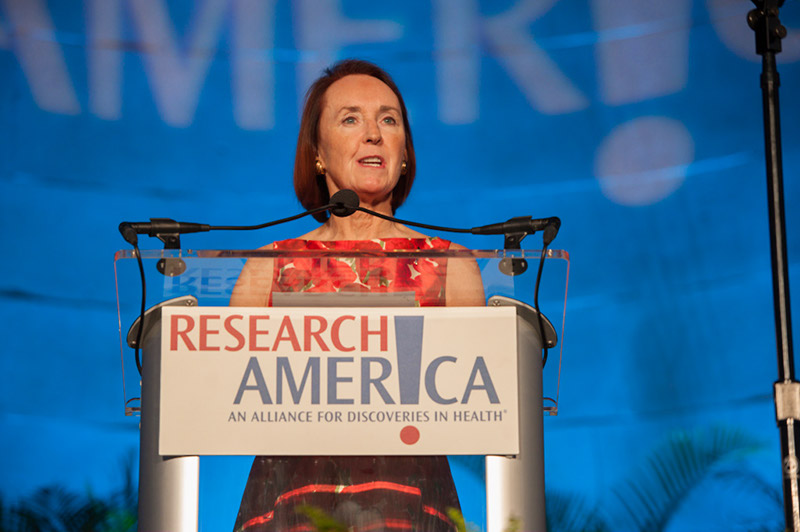Summer in the Capital City

 Dear Research Advocate:
Dear Research Advocate:
With the recent nomination of atmospheric scientist Kelvin Droegemeier, PhD, to head the White House Office of Science and Technology Policy (OSTP), I have been asked about the role of this office and its director. In this terrific analysis, Former OSTP assistant director Tom Kalil lays it all out and also offers compelling observations on the nature of effective leadership. Anyone interested in public service, policy-making or policy-influencing, and/or honing leadership skills, would do well to spend a few minutes with “Policy Entrepreneurship at the White House.”
Research!America sent a letter to Senate Commerce, Science, Transportation Committee Chair John Thune (R-SD) and Ranking Member Bill Nelson (D-FL) expressing our support for Dr. Droegemeier as the next director of the OSTP. Dr. Droegemeier’s record of science leadership and his demonstrated ability to work in a bipartisan manner under both President George W. Bush and President Barack Obama make him a wise choice to lead OSTP. Use this editable message to urge your Senators to move swiftly to confirm Dr. Droegemeier.
It’s August, Congress is out, and you might have time for another good, S&T-relevant read: Joshua Rothman’s article “The Big Question: Is the World Getting Better or Worse?” in the July 23rd New Yorker. Rothman cites Pew Research Center data showing only a slim plurality of Americans saying they think life is better than 50 years ago, a finding that has been documented in other nations as well. He examines the general proposition that our views about progress depend on our time horizons. Addressing science and evidence-based decision-making without using those exact terms, Rothman concludes in part that “Problems and progress are inextricable, and the history of improvement is also the history of problem-discovery.” Recognizing the complexity of factors that affect how progress is achieved and perceived can only make us smarter as advocates for increasing its pace.
A new epidemiology report from the CDC highlights the breadth, severity and ongoing research effort needed to address the Zika virus. More than 4,800 pregnancies in US territories from 2016 to 2018 showed evidence of Zika. Although it is not possible to gauge the full impact of this virus until children mature, identifying health problems early is important for developing and implementing treatment strategies.
Bloomberg News reports that Sen. Todd Young (R-IN) has been circulating a congressional sign-on letter in support of the House-passed repeal of the medical device tax. Our vice president of policy and advocacy, Ellie Dehoney, is quoted in the article suggesting that there could be a bipartisan path forward for repeal as part of a larger tax or spending bill. Help us push for that outcome!
Tomorrow is the final proposal submission deadline for our young scientist civic engagement microgrant program. This nonpartisan civic engagement effort seeks to elevate the importance of science and research in the national conversation during this election season. (There is still time to become a funding partner. Contact Donna McKelvey at [email protected] to join us in empowering as many young scientists as possible!)
Sincerely,
Mary Woolley




